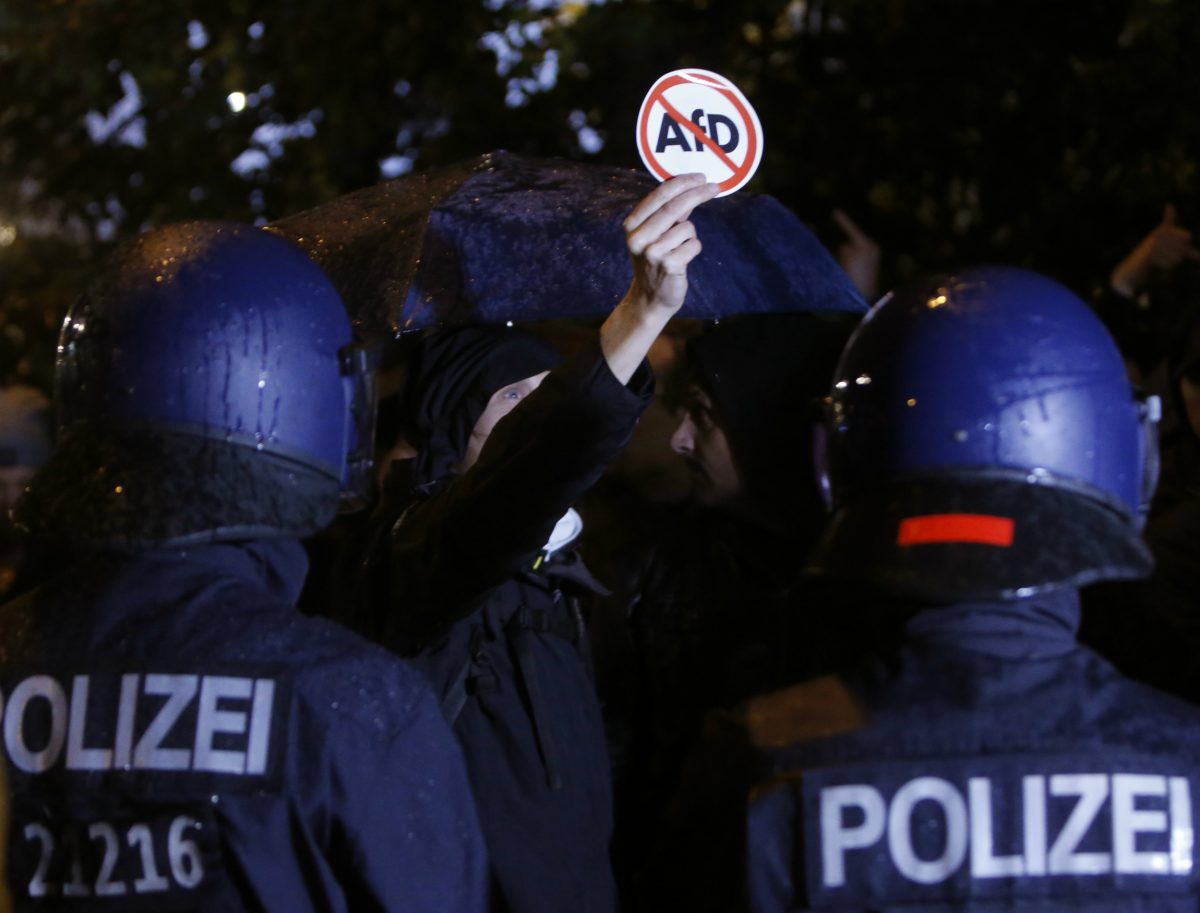‘A political earth tremor’: Dutch media on Germany’s elections

After their largely low-key coverage of Germany’s Parliamentary elections in recent weeks, the Dutch media woke up to the news that the anti-immigrant right-wing party Alternative für Deutschland had won seats in the Bundestag for the first time by claiming 12.6% of the popular vote.
‘You could call it a political earth tremor,’ said RTL’s Germany correspondent Jeroen Akkermans. Though the CDU, the party of chancellor Angela Merkel, remained the largest group in Parliament, its diminished vote share of 33%, together with the AfD’s third place, reflect a new, more polarised political climate, Akkermans said.
The result is ‘a blow’ for Merkel and the CDU, reported De Telegraaf, pointing out that it was the party’s worst performance since elections to the Bundestag resumed in 1949. ‘Merkel admitted she was hoping for a better result, but said she still wanted to form a new coalition,’ the paper said.
Several commentators drew parallels between the performance of the AfD and Geert Wilders’s more established PVV party, which took a similar share of the vote in March’s elections. Like the PVV, the AfD looks certain to be shunned by the other parties when talks to form a coalition begin.
Sheila Sitsaling, in De Volkskrant, wrote: ‘Germany has become a bit more Dutch: less centre, more fringe, social-democracy on the wane, the triumphalism of right-wing populism in a representative democracy’.
Others predicted a rocky road ahead for Merkel as she tries to form a working government. Her current partners, the social democrat SPD party, have already said they will go into opposition after seeing their share of the vote drop below 21%.
That leaves a so-called ‘Jamaica coalition’ with the Green party and the liberal party FPD the most likely option, which could lead to tensions over issues such as immigration, said NOS correspondent Jeroen Wollaers. ‘Merkels sister party, the [Bavaria-based] CSU, in particular wants to be extremely strict on refugees while the Greens don’t want that at all. It will be a real struggle to bring those parties together.’
Wilders himself hailed the AfD’s success on his medium of choice, Twitter, describing it as a triumph for anti-Islam sentiment. The PVV leader congratulated Frauke Petry and the AfD and tweeted a photo of himself with Petry and Marine Le Pen.
Just hours later Petry surprisingly announced she would not be sitting with the AfD group in parliament. Le Pen’s leadership was dealt a blow last week with the departure of her party’s vice-president and chief strategist Florian Philipott.
Strikingly, given his strong affinity with Israel, Wilders’s views contrasted sharply with the response of leading Jewish organisations. The European Jewish Congress condemned the AfD for displaying ‘alarming levels of intolerance’ and urged other parties to ostracise it. ‘I expect our democratic forces to expose the true nature of the AfD and its empty, populist promises,’ said the group’s president, Josef Schuster.
Thank you for donating to DutchNews.nl.
We could not provide the Dutch News service, and keep it free of charge, without the generous support of our readers. Your donations allow us to report on issues you tell us matter, and provide you with a summary of the most important Dutch news each day.
Make a donation